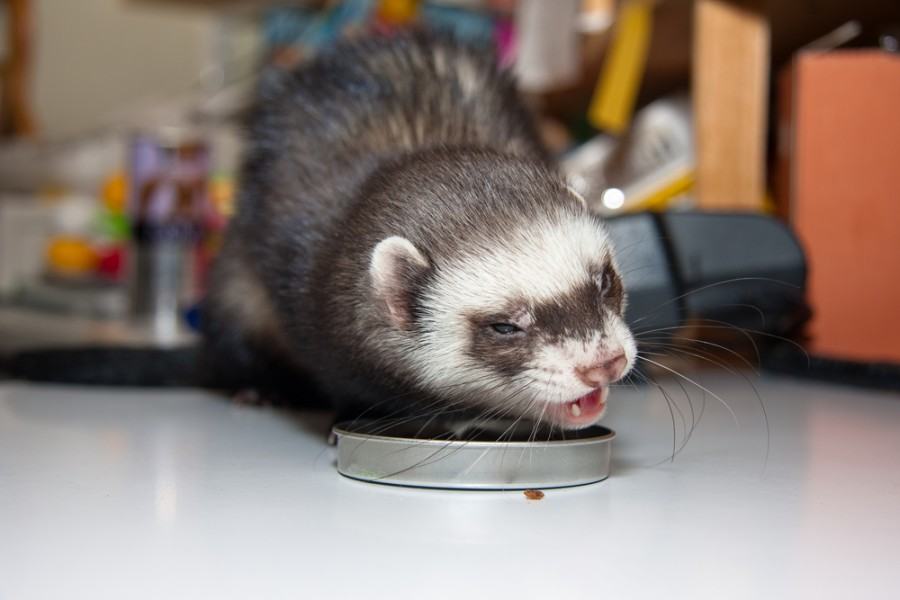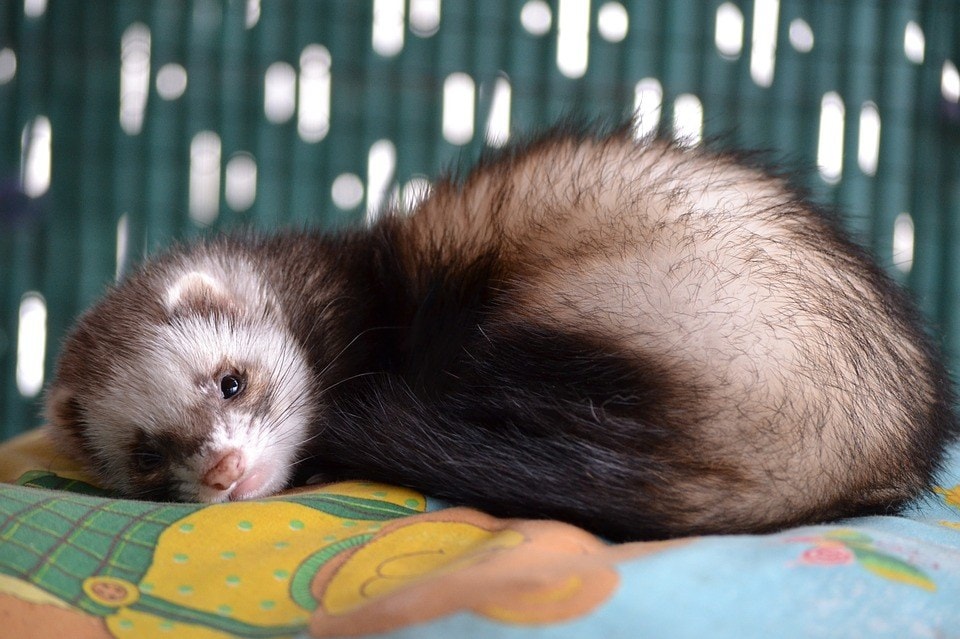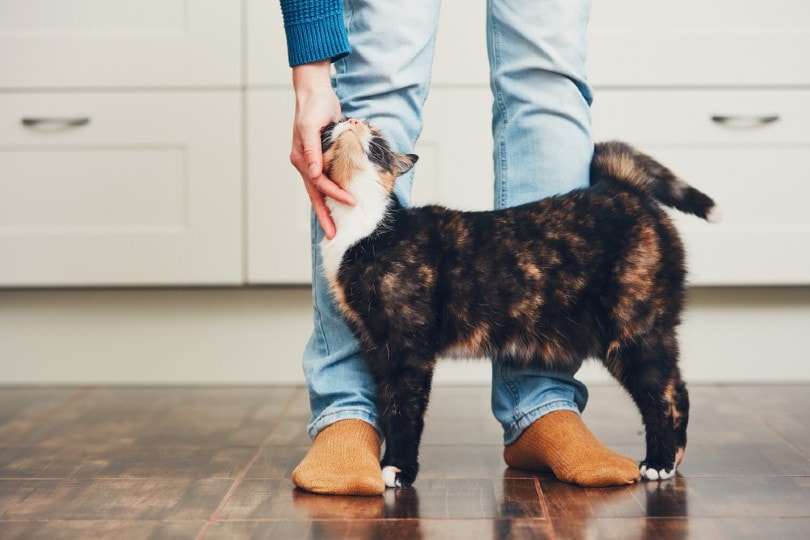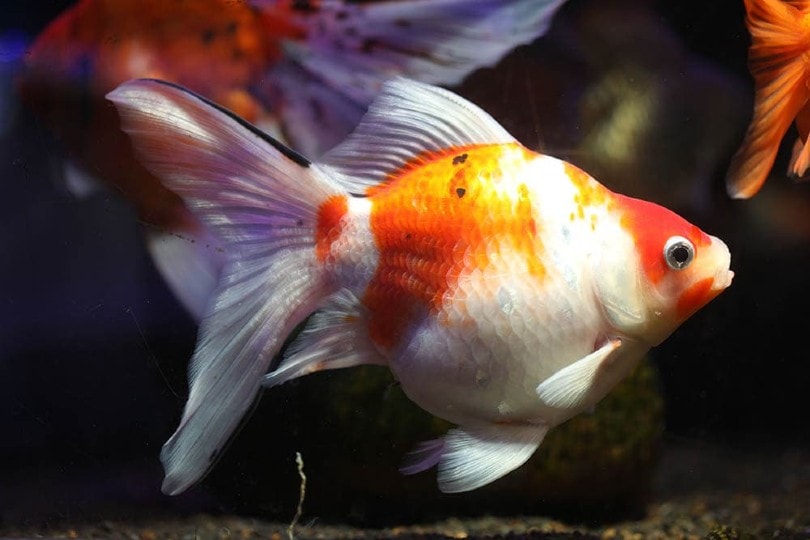VET APPROVED

The information is current and up-to-date in accordance with the latest veterinarian research.
Learn more »Click to Skip Ahead
Ferrets are unique pets. Raising and caring for a ferret is a different ball game compared to keeping a pet dog or cat. That’s not to say they can’t make great pets—they absolutely can! When you’re caring for a dog or cat, the behaviors you can expect are pretty standard. Ferrets, on the other hand, have some decidedly strange behaviors. If you’re new to ferret care, their quirks might be surprising, off-putting, or even worrisome to you.
One common behavior that people notice in their ferrets is shaking. When you see your ferret shaking and trembling, it can immediately cause worry and fear. Is there something wrong with your ferret? Is it having a seizure? Most likely, neither of these is the case. In most circumstances, shaking is perfectly normal behavior for your ferret to exhibit. In fact, there are several reasons why your ferret might shake, such as excitement and nervousness during or after eating and during or after sleep. These are all innocuous and have no reason for concern.

The 3 Reasons Your Ferret Might Be Shaking
Your ferret could be shaking for various reasons, most of which are harmless. You’ll probably see your ferret shaking in each of the following scenarios. They are all healthy and normal times for a ferret to shake or tremble, so if your ferret is doing so around these times, you have no reason to worry.
1. Excitement
Ferrets can harbor an awful lot of excitement in their little bodies! When that happens, it’s all your ferret can do to contain it, and the extra energy comes out in the form of excited shaking!
2. After Eating
It’s very common to see ferrets shaking during and after eating. This is because a ferret’s metabolic rate increases during eating. A short while after finishing the meal, your ferret’s shaking should cease.
3. During and After Sleep
Ferrets actually burn more energy during sleep than when they’re awake! As such, their metabolisms are ramped up during sleep, which can cause them to shake. It can take a while for their metabolism to calm down once they wake up, which is why ferrets will often continue shaking for a short period after waking.

Do Ferrets Shake From Cold?
Ferrets are furry and well-equipped for cold temperatures. Truthfully, they’re unhappy once the temperature rises above 70 degrees Fahrenheit. Still, people often misinterpret their ferret’s shaking as shivering. Ferrets are rarely ever cold, so the chances of your ferret shivering from the cold are very slim unless it’s absolutely freezing in your home. If your ferret is shaking, it’s unlikely to be because it’s cold.
Should You Do Something About Your Ferret Shaking?
Most of the reasons your ferret could be shaking are no cause for concern. If your ferret is shaking under the ordinary conditions we’ve just covered, you don’t need to do anything about it. This behavior is entirely normal and doesn’t signify a health concern.
However, ferrets will also shake sometimes when they’re stressed or nervous, but theys can be calmed down with a little attention and care. While no immediate health risks are associated with your ferret shaking from nervousness, it’s always best to keep your ferret’s life as stress-free as possible.
How to Calm a Nervous Ferret

If you think your ferret is shaking because of stress or nervousness, you might want to try the following three methods to calm it down.
Play Music
Humans aren’t the only creatures that enjoy music. If you play a soothing song, it can help to calm your ferret down when it’s feeling anxious. On the other hand, if you think your ferret needs a pick-me-up, try playing something more upbeat.
Desensitize Them
Try to identify any changes in the environment that are causing your ferret to feel nervous or stressed. For example, if your ferret is stressed about a loud noise or being moved to a new environment, you can desensitize it. Once the ferret has calmed down for some time, you can start training to get them used to a new area or the noise.
You do this by exposing the ferret to scary new places or noises for brief periods and rewarding it with a species-appropriate treat only if it is calm. It is very important to give treats to your ferret only when it is calm. Giving treats to your ferret when it is anxious or nervous will only increase the likelihood of it becoming more anxious. You can gradually increase the time of exposure to a scary noise or the distance between its safe area and a new space. Over time, your ferret will learn that there is nothing to stress about, but this is a gradual process.
A few drops of salmon oil or pieces of an egg are yummy treats that your ferret will appreciate. Remember, ferrets are obligate carnivores, so avoid giving your ferret treats or diets high in carbohydrates can have the opposite effect and make your ferret restless.
Regularly consuming carbohydrates is not natural for ferrets and can lead to pancreatic tumors. An adequate diet is the best way to keep your ferret healthy and calm.
Be Affectionate
Ferrets are some of the most affectionate pets you can keep. They love attention, and a bit of care and love from you might be all your ferret needs to calm down and get rid of anxious energy. Try petting your ferret while it lays with you. Ferrets also seem to enjoy a relaxing, slow rock from side to side. Don’t be afraid to pick your ferret up and give it love when you think it’s shaking from stress or nervousness.

When Should Your Ferret’s Shaking Worry You?
There are very few times when your ferret’s shaking should be a worry. But if your ferret’s shaking is accompanied by other signs, such as vomiting or lethargy, contact your veterinarian. While ferrets are generally healthy, some diseases, such as insulinoma, can result in seizures that might appear like shaking. So, if your ferret is also displaying weakness and nausea along with its shaking, call your veterinarian.

Other Strange Ferret Behaviors

Shaking is far from the only strange behavior that ferrets display. Here are some other behaviors you’ll see when caring for a ferret that might initially seem strange.
Sleeping in Piles
If you have multiple ferrets, you probably have a bed for each. Despite that, you’ll likely notice that all of your ferrets pile up in one bed. This is for comfort and warmth. Even though you may worry about the bottom ferret, they won’t suffocate! That is just how ferrets prefer to sleep.
Playing Dead
You’ve heard of playing possum, but how about playing ferret? Well, ferrets don’t play dead the same way a possum does, but when they sleep so soundly, you might think they’re dead! Even if you shake and pinch them, the ferrets won’t wake up! So, don’t panic if your ferret appears to be dead—it’s probably just sleeping.
- Related Read: Are Ferrets Nocturnal?
Running Into Things
Have you ever noticed that your ferrets seem to burst out of the cage with an insane amount of energy and zero care when you open the door? They’re not even trying to avoid running into the walls and furniture. Don’t worry; your ferret isn’t blind. They have pretty bad eyesight, but it’s no cause for concern. Ferrets have giant bursts of energy, and when they run into objects after coming out of their cage, it’s actually a sign of good health. Plus, ferrets have an incredibly high pain tolerance and likely don’t notice that they’re running into everything!


Conclusion
When you start caring for ferrets, you might be surprised or even worried to see them shaking. While a human baby shaking is usually a concerning sign, the same is not the case for a ferret. Ferrets shake for perfectly normal reasons, such as excitement and nervousness, during and after eating, during and after sleep, and other times as well. Unless your ferret’s shaking is accompanied by major signs of sickness like weakness, lethargy, and nausea, there’s no reason for you to be concerned.
Featured Image Credit: GuilleNeT, Pixabay










